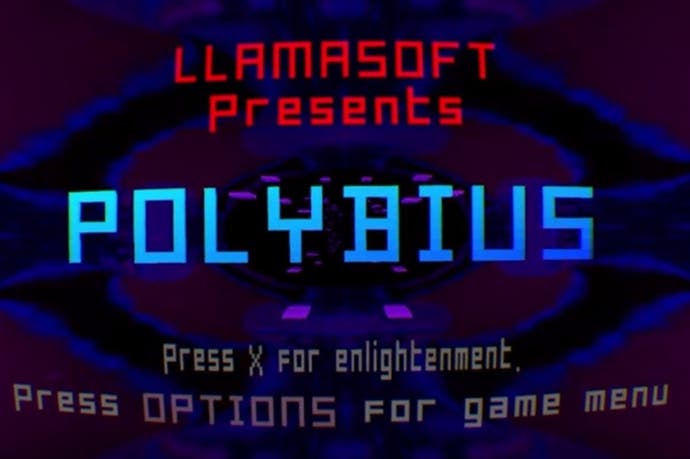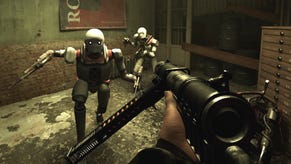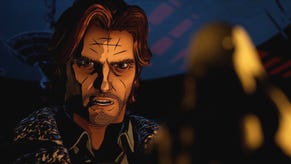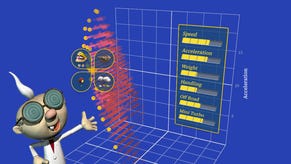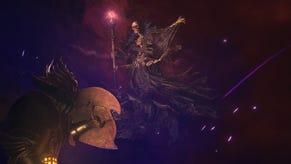Jeff Minter is re-imagining urban legend Polybius for PlayStation VR
Looks just like you remember, before the amnesia made you forget.
Jeff Minter, the man behind Space Giraffe, TxK and GoatUp, is re-imaging the classic arcade game Polybius (you know the one) as a PlayStation VR exclusive.
If you don't remember Polybius you're not alone. Not many actually played it, but everyone seems to know someone who knows someone who's played it. Word on the street was that it caused seizures, amnesia, or government agents to show up and recruit its best players for some kind of top secret The Last Starfighter-esque national security initiative.
If this sounds far-fetched, that's because it is. As we investigated last year, Polybius likely never actually existed, but enough people believe in it for a myriad of fascinating reasons involving actual government experiments, drug busts at arcades, children getting sick from too much gaming, and clever pranksters weaving these stories together into a narrative about an era so long ago our memories are bound to be fuzzy.
Minter is doing his best to keep the legend alive. In his PlayStation Blog post about his Polybius reboot, he describes the lengthy tale of how he was once invited to a Spielbergian warehouse where he was shown a mysterious arcade cabinet.
According to Minter, the game was incredibly enjoyable, but it came with the unfortunate side-effect of causing temporary amnesia and anxiety, and he can only recall bits and pieces of it that slowly come back to him, little by little. But he's confident that it had been a euphoric experience, and one he wished to replicate without causing psychological harm and sending people into an existential crisis.
"Some of the techniques used by the game obviously worked well, as the sense of enlightenment and euphoria attested. If only something could be implemented that could recreate those effects without causing deep-seated floating anxiety and temporary amnesia," Minter pined.
"Trying to recall precise details was as slippery as trying to trawl up details from a vanished dream, but I was able to form some more concrete broad impressions. The overriding thing was a tremendous sense of speed, rushing through geometric structures, the impression that I was surrounded by bright structures and pulsating light, particles that sleeted through my very brain, it felt like."
It wasn't until the advent of VR that Minter believed he could capture the feelings described above. "I've been dabbling in ludic psychedelia for a while now, and maybe the time and the medium was right now for me to attempt a game to at least in part replicate the effects, if not the exact gameplay, of that old legend. Leaving out all the bad stuff, of course," he said.
"Accordingly we began building a framework within which to create such a thing. To accurately convey the sensation of speed-rush that so strongly permeated the original game it was necessary to build an engine that could deliver everything we needed at 120 FPS without possibility of frame drops, and at a very high internal resolution."
Now the question remains, will making your way to the top of Jeff Minter's Polybius' leaderboards result in government spooks recruiting you for a top-secret mission?
